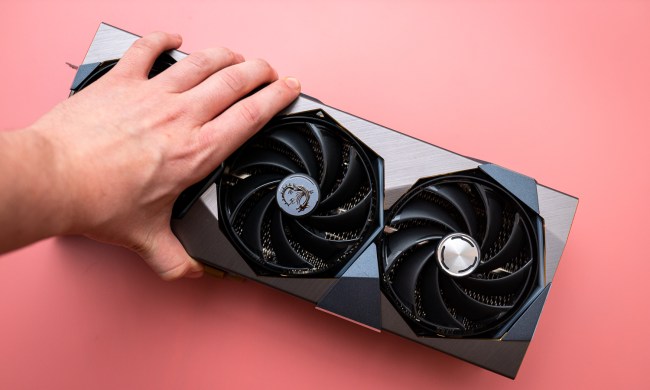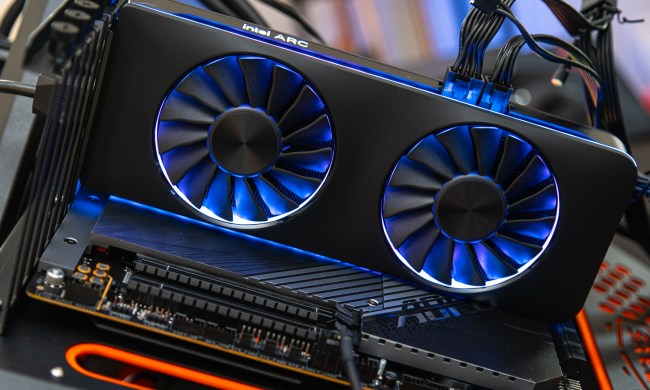
AMD is set to reveal a research paper about its technique for neural texture block compression at the Eurographics Symposium on Rendering (EGSR) next week. It sounds like some technobabble, but the idea behind neural compression is pretty simple. AMD says it’s using a neural network to compress the massive textures in games, which cuts down on both the download size of a game and its demands on your graphics card.
We’ve heard about similar tech before. Nvidia introduced a paper on Neural Texture Compression last year, and Intel followed up with a paper of its own that proposed an AI-driven level of detail (LoD) technique that could make models look more realistic from farther away. Nvidia’s claims about Neural Texture Compression are particularly impressive, with the paper asserting that the technique can store 16 times the data in the same amount of space as traditional block-based compression.
AMD hasn’t revealed its research yet, so there aren’t a ton of details about how its method would work. The key with Nvidia’s approach is that it leverages the GPU to decompress textures in real time. This has been an issue in several games released in the past couple of years, from Halo Infinite to The Last of Us Part I to Redfall. In all of these games, you’ll notice low-quality textures if you run out of VRAM, which is particularly noticeable on 8GB graphics cards like the RTX 4060 and RX 7600.
One detail AMD did reveal is that its method should be easier to integrate. The tweet announcing the paper reads, “unchanged runtime execution allows easy game integration.” Nvidia hasn’t said if its technique is particularly hard to integrate, nor if it will require specific hardware to work (though the latter is probably a safe bet). AMD hasn’t made mention of any particular hardware requirements, either.
We'll present "Neural Texture Block Compression" @ #EGSR2024 in London.
Nobody likes downloading huge game packages. Our method compresses the texture using a neural network, reducing data size.
Unchanged runtime execution allows easy game integration. https://t.co/gvj1D8bfBf pic.twitter.com/XglpPkdI8D
— AMD GPUOpen (@GPUOpen) June 25, 2024
At this point, neural compression for textures isn’t a feature available in any game. These are just research papers, and it’s hard to say if they’ll ever turn into features on the level of something like Nvidia’s DLSS or AMD’s FSR. However, the fact that we’re seeing AI-driven compression from Nvidia, Intel, and now AMD suggests that this is a new trend in the world of PC gaming.
It makes sense, too. Features like DLSS have become a cornerstone of modern graphics cards, serving as an umbrella for a large swath of performance-boosting features. Nvidia’s CEO has said the company is looking into more ways to leverage AI in games, from generating objects to enhancing textures. As features like DLSS and FSR continue become more prominent, it makes sense that AMD, Nvidia, and Intel would look to expand their capabilities.
If we do see neural texture compression as marketable features, they’ll likely show up with the next generation of graphics cards. Nvidia is expected to reveal its RTX 50-series GPUs in the second half of the year, AMD could showcase its next-gen RDNA 4 GPUs in a similar time frame, and Intel’s Battlemage architecture is arriving in laptops in a matter of months through Lunar Lake CPUs.




